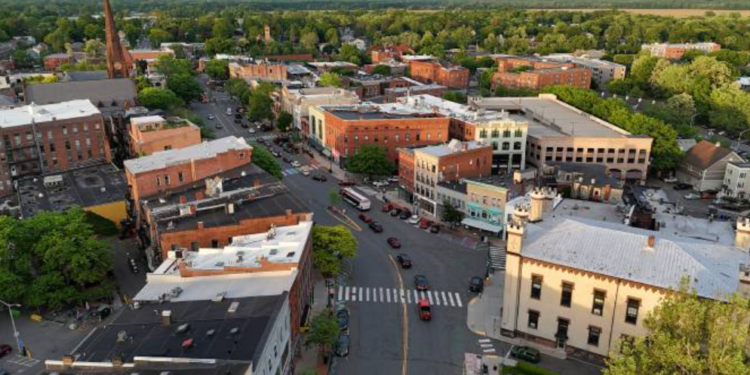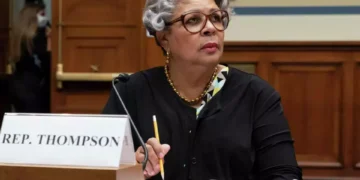Dec 18, 2024 Story by: Editor
NORTHAMPTON — After nearly two years of work, the Northampton Commission for the Study of Reparations has unveiled its preliminary report. This document outlines a path to address historical injustices against Black residents and workers in the city, proposing structural and symbolic changes.
The report presents 15 recommendations aimed at mitigating some of the harm caused by slavery and its enduring aftermath. Crafted by a nine-member commission, the majority of whom are Black, the report seeks to confront the city’s complex legacy of racism.
At a Dec. 5 City Council meeting, commission chair Ousmane Power-Greene acknowledged Northampton’s contradictory history. While the city was a hub for abolitionist efforts before the Emancipation Proclamation, it also upheld 129 years of legalized slavery before its abolition in Massachusetts in 1783.
“The work of the Northampton Commission for the Study of Reparations begins with the shared understanding and acknowledgment that Northampton’s history involves slavery, racial discrimination, and systemic racism,” Power-Greene stated. He also highlighted the city’s rich history of abolition activism, which included contributions from free Black individuals, formerly enslaved people, and white allies.
One significant finding in the report was the identification of over 240 historical property deeds containing language that excluded Black individuals from ownership or residence. Of these, more than half explicitly stated restrictions, such as: “These premises shall not be conveyed to or occupied by any colored persons.” Others used coded language, like: “The premises shall not be sold, rented, or leased to any person or class of persons whose ownership would be injurious to this locality for residential purposes.”
Most of these deeds were issued between 1923 and 1947, many originating from properties developed by Charles Sauter. The report also noted that 40 deeds with racial restrictions remain on record, though such restrictions are unenforceable today.
“These restrictive covenants evidence institutionalized and systemic racism that was apparently accepted by and acceptable to major institutions, e.g., banks and other lending institutions, in the city as well as prominent citizens, including lawyers,” the report states.
The commission has called on financial institutions that were involved in these discriminatory practices to contribute to the city’s reparations efforts. Further details and responses from these institutions will be included in the commission’s final report, expected at a later date.
The report also recommends symbolic actions, such as renaming a major street after Sojourner Truth, a prominent abolitionist and women’s rights activist who lived in Northampton. Additionally, it urges the city to support federal and state reparations legislation.
During the council meeting, commission member Marsha Morris emphasized the need for broader community involvement.
“The whole point of the report was to look at redress from the point of view of Black people, African American people in particular, and we simply have not done that,” Morris said. She stressed the importance of engaging the community to create impactful recommendations addressing Black residents’ daily lives.
Renika Montgomery-Tamakloe, another commission member, called for an extension to finalize the report, currently slated for March.
“This phase of the work is actually the most pressing,” Montgomery-Tamakloe noted. “This is us going out into the community, speaking with community members … who are still affected to this day by the way things have shaken out in Northampton.”
Councilor At-Large Garrick Perry, the city’s only Black councilor and a member of the commission, echoed the need for community input through surveys.
“It’s hard to get people to commit to filling out forms and things, but I think that it’s important to do that work,” Perry said.
Mayor Gina-Louise Sciarra praised the commission’s efforts, describing the preliminary report as “very robust” during the council meeting.
“I’ve already asked my office to start looking at [the recommendations] and seeing what we could start working on now, even though it’s preliminary,” Sciarra said.
The commission’s work continues as it seeks to engage the community and finalize its recommendations. Source: Gazette Net

















